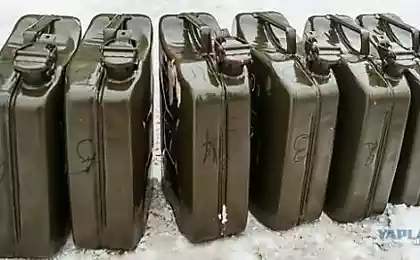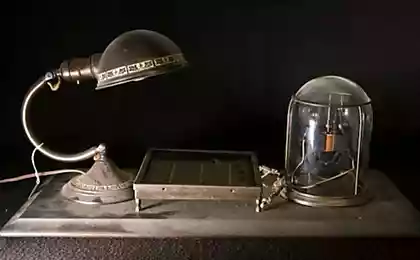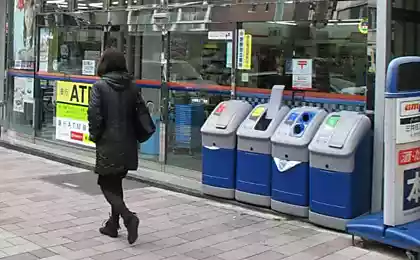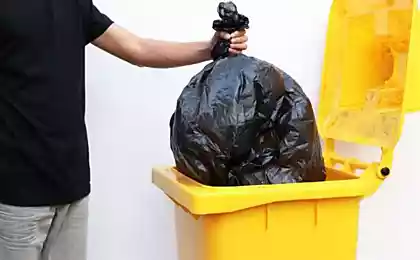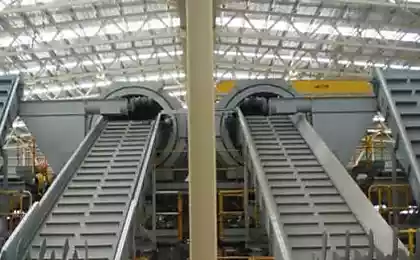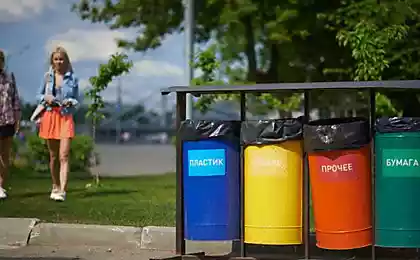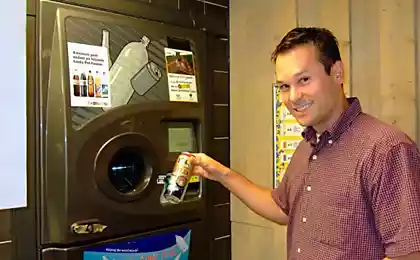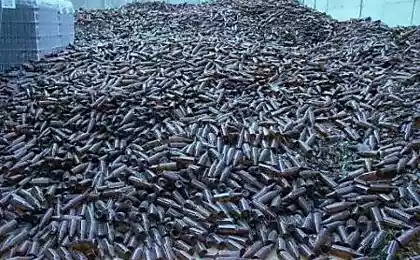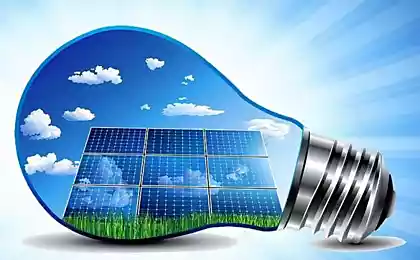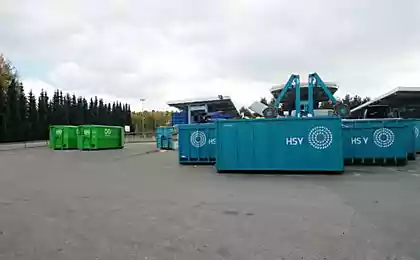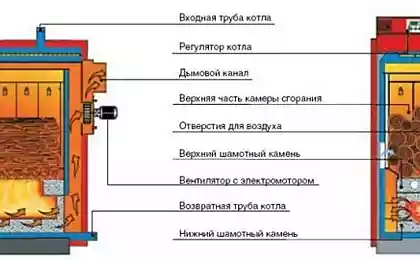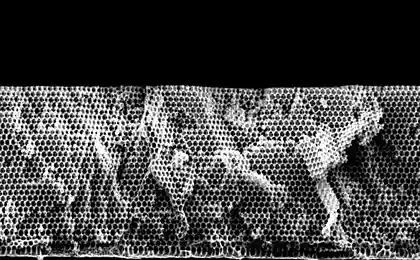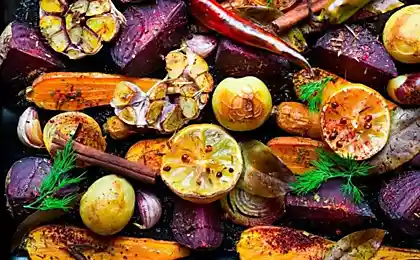551
Waste vegetables and energy
The world's third largest ice cream manufacturer R&R Ice Cream has found an effective use of inedible energy mix of sugar, fat and protein, which remains in production lines and which was previously dumped. Now these wastes are sent to a nearby plant for the production of biogas, which are transformed into fuel and used for generation and subsequent supply of electricity to homes.
Specialists of the German Potsdam Institute for climate change published the results of the only comprehensive studies on the problem of food waste and overproduction of food. The authors came to the conclusion that about 20% of all manufactured products in the world become trash. In addition, the dependence of the volume of waste from standard of living: the higher it is, the more food is thrown away.
However, the theme of waste (not only food), in addition to researchers, actively engaged in practice. Thus, in Denmark, plan to introduce a subsidy scheme for projects that reduce food waste. With the same purpose in Italy adopted a law to encourage the donation of unwanted businesses products to charitable organizations. Creative to the problem of food waste has approached Britain's largest and world's third largest ice cream manufacturer R&R Ice Cream. The enterprise has found an effective use of inedible energy mix of sugar, fat and protein, which remains in production lines and which was previously dumped. Now these wastes are sent to a nearby plant for the production of biogas, where it is converted into fuel and used to supply electricity to homes.
Russia issues of waste disposal and reducing its volume is also not bypassed. Thanks to the accepted amendments to the law "On wastes of production and consumption" on January 1, 2017, prohibits the disposal of waste to be recycled. Among those will be the tires, metals, glass, paper, cardboard, plastic, and electrical engineering.
Some domestic enterprises has gone a step further and instead of dumping waste undertook their secondary use. For example, in the following year in Yekaterinburg is planned to start the joint project company Vireo Energy and emup "Spetsavtobaza" for the processing of municipal solid waste and the resulting electrical and thermal energy.
Waste decided to fight effectively in North Ossetia: here will launch a greenhouse complex to grow vegetables, mushrooms, herbs and other crops using the energy obtained from the recycling.
The problem of utilization of waste heat is equally important. Today there are technical solutions allowing not to throw away a valuable resource to the wind. For example, in the next four years in Norway will be launched an innovation project, the technology which will convert waste heat into electricity. Moreover, according to the authors, it don't need no turbines, no pumps or other mechanisms. The process will occur due to the thermoelectric materials. This is a special alloys and chemical compounds, whose properties, as can be understood from the name, allow to obtain electricity directly from heat. It is enough to panel or module with such materials to put in specific temperature conditions.
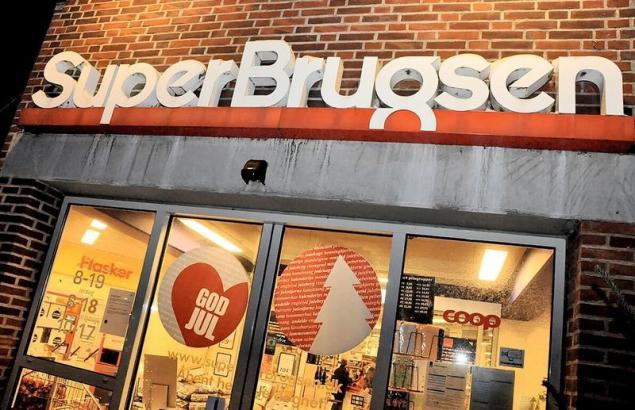
"Thermoelectric materials can at best convert about ten percent of thermal energy into electricity. But in practice this proportion is one to two percent. However, in industrial scale, even this rate of efficiency can mean considerable savings," notes Professor Truls Norby, head of innovation cluster project, a member of the Norwegian Academy of Sciences.
In the recovery of waste heat there are already successful projects. For example, the supermarket chain Super Brugsen in Denmark. Thanks to the cooperation between Danfoss and municipal heat supply entity excess heat from the cooling system of the stores is sent to homes next door. This solution not only saves tenants the cost of heat, but also reduces the amount of carbon dioxide emissions into the environment.
"Considering how much today is thermal pollution and how rapidly resources are spent processing the thermal waste-to-energy is the most effective way of using them. And although Russia has long been a necessary equipment for utilization of the excess heat at the moment such projects here. And they should appear as able not only to increase the investment attractiveness of a particular enterprise, but also to reduce the financial burden on residents of nearby quarters and utility companies", — said Anton Belov, Deputy Director of the heat Department of the company "Danfoss".
Development of existing projects in the field of waste and recycling is gradually accelerated, and, as a consequence, there are increasingly innovative solutions. And if in Europe due to the still steady trend emoryuniversity an important role in this process is played by both the government and commercial enterprises, in Russia "green" waste is only in the beginning. For domestic companies there is as a disadvantage and an advantage: on the one hand, there are missed opportunities for resource optimization and efficiency, on the other — borrowing of foreign experience will allow to avoid many "bumps" and faster to implement these projects.

published
Source: www.c-o-k.ru/articles/othody-v-ovoschi-i-energiyu
Specialists of the German Potsdam Institute for climate change published the results of the only comprehensive studies on the problem of food waste and overproduction of food. The authors came to the conclusion that about 20% of all manufactured products in the world become trash. In addition, the dependence of the volume of waste from standard of living: the higher it is, the more food is thrown away.
However, the theme of waste (not only food), in addition to researchers, actively engaged in practice. Thus, in Denmark, plan to introduce a subsidy scheme for projects that reduce food waste. With the same purpose in Italy adopted a law to encourage the donation of unwanted businesses products to charitable organizations. Creative to the problem of food waste has approached Britain's largest and world's third largest ice cream manufacturer R&R Ice Cream. The enterprise has found an effective use of inedible energy mix of sugar, fat and protein, which remains in production lines and which was previously dumped. Now these wastes are sent to a nearby plant for the production of biogas, where it is converted into fuel and used to supply electricity to homes.
Russia issues of waste disposal and reducing its volume is also not bypassed. Thanks to the accepted amendments to the law "On wastes of production and consumption" on January 1, 2017, prohibits the disposal of waste to be recycled. Among those will be the tires, metals, glass, paper, cardboard, plastic, and electrical engineering.
Some domestic enterprises has gone a step further and instead of dumping waste undertook their secondary use. For example, in the following year in Yekaterinburg is planned to start the joint project company Vireo Energy and emup "Spetsavtobaza" for the processing of municipal solid waste and the resulting electrical and thermal energy.
Waste decided to fight effectively in North Ossetia: here will launch a greenhouse complex to grow vegetables, mushrooms, herbs and other crops using the energy obtained from the recycling.
The problem of utilization of waste heat is equally important. Today there are technical solutions allowing not to throw away a valuable resource to the wind. For example, in the next four years in Norway will be launched an innovation project, the technology which will convert waste heat into electricity. Moreover, according to the authors, it don't need no turbines, no pumps or other mechanisms. The process will occur due to the thermoelectric materials. This is a special alloys and chemical compounds, whose properties, as can be understood from the name, allow to obtain electricity directly from heat. It is enough to panel or module with such materials to put in specific temperature conditions.

"Thermoelectric materials can at best convert about ten percent of thermal energy into electricity. But in practice this proportion is one to two percent. However, in industrial scale, even this rate of efficiency can mean considerable savings," notes Professor Truls Norby, head of innovation cluster project, a member of the Norwegian Academy of Sciences.
In the recovery of waste heat there are already successful projects. For example, the supermarket chain Super Brugsen in Denmark. Thanks to the cooperation between Danfoss and municipal heat supply entity excess heat from the cooling system of the stores is sent to homes next door. This solution not only saves tenants the cost of heat, but also reduces the amount of carbon dioxide emissions into the environment.
"Considering how much today is thermal pollution and how rapidly resources are spent processing the thermal waste-to-energy is the most effective way of using them. And although Russia has long been a necessary equipment for utilization of the excess heat at the moment such projects here. And they should appear as able not only to increase the investment attractiveness of a particular enterprise, but also to reduce the financial burden on residents of nearby quarters and utility companies", — said Anton Belov, Deputy Director of the heat Department of the company "Danfoss".
Development of existing projects in the field of waste and recycling is gradually accelerated, and, as a consequence, there are increasingly innovative solutions. And if in Europe due to the still steady trend emoryuniversity an important role in this process is played by both the government and commercial enterprises, in Russia "green" waste is only in the beginning. For domestic companies there is as a disadvantage and an advantage: on the one hand, there are missed opportunities for resource optimization and efficiency, on the other — borrowing of foreign experience will allow to avoid many "bumps" and faster to implement these projects.

published
Source: www.c-o-k.ru/articles/othody-v-ovoschi-i-energiyu
